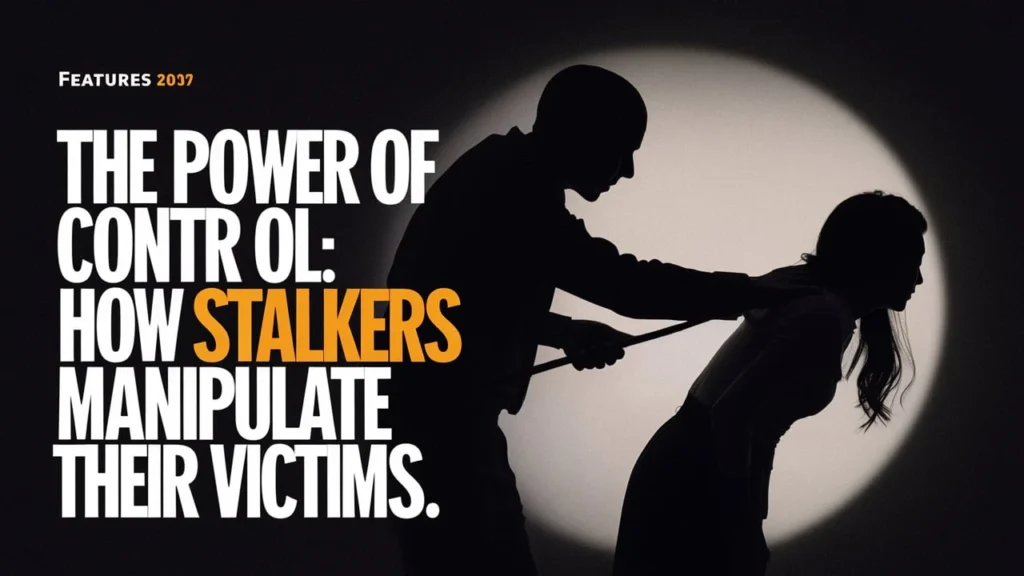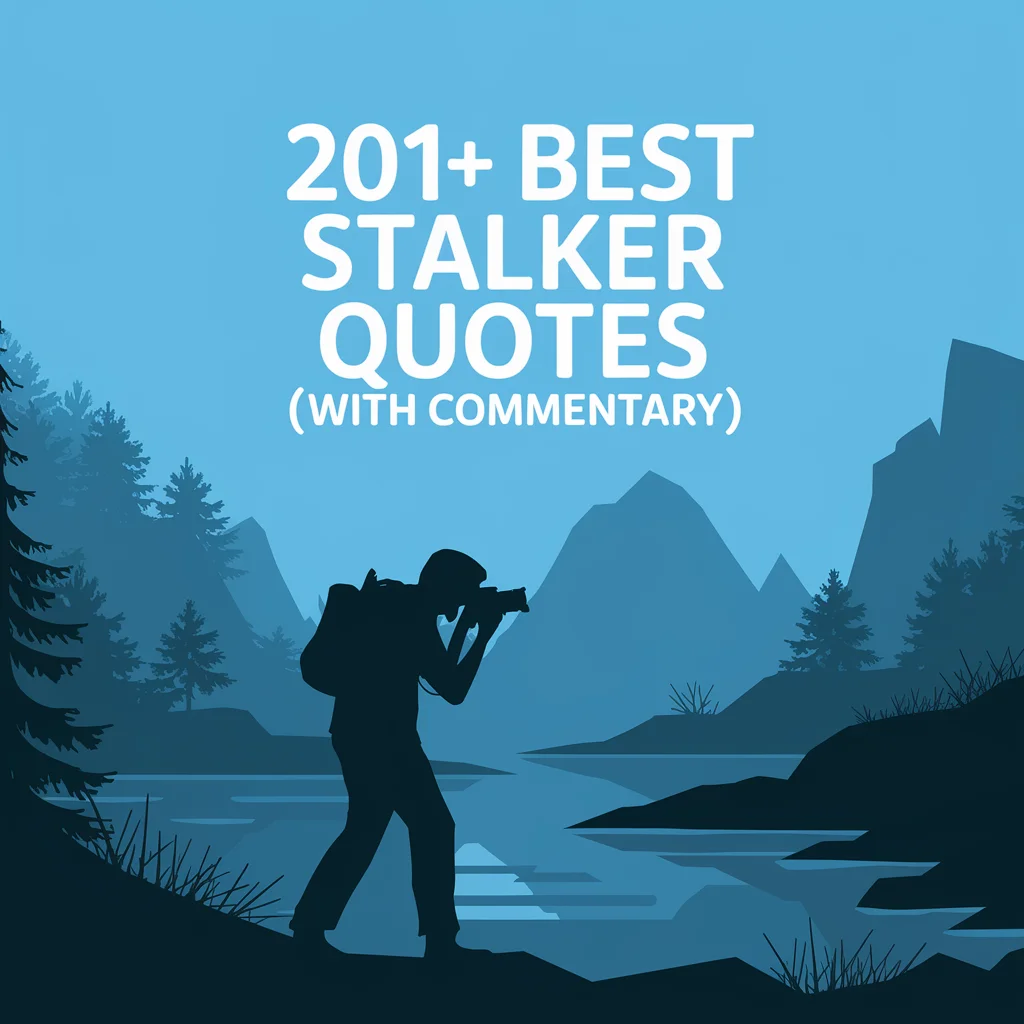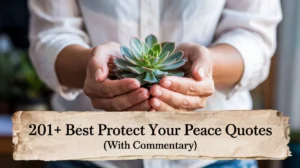Stalking is a deeply unsettling and often dangerous behavior, characterized by obsessive, intrusive, and unwanted attention toward another individual. In literature, film, and real-life stories, stalker quotes often explore the dark psychological motivations behind such actions, revealing the disturbing effects they have on both the victim and the perpetrator.
This list of quotes aims to shed light on the complexities of obsession, obsessional love, control, and manipulation, providing insight into the minds of those who engage in stalking behavior, as well as the emotional turmoil they cause.
The Psychology of Obsession Understanding the Mind of a Stalker
- “Stalkers don’t just follow- they obsess over every detail of their target’s life.”
- “The line between love and obsession is thin, but it’s often impossible for a stalker to see.”
- “In a stalker’s mind, possession and affection are the same thing.”
- “A stalker doesn’t just want to be close want to control the narrative of someone else’s life.”
- “What starts as infatuation quickly spirals into an obsession, blurring the lines of reality.”
- “Stalking isn’t about love; it’s about control, manipulation, and power.”
- “In the mind of a stalker, every action of the victim is interpreted as a sign of interest.”
- “To a stalker, boundaries are mere obstacles that must be overcome.”
- “Stalking is a form of emotional and psychological imprisonment, not affection.”
- “The most dangerous stalkers are those who believe their obsession is justified as love.”
- “A stalker sees no difference between need and desire, often unable to distinguish obsession from affection.”
- “The need to possess consumes a stalker’s every thought and action.”
- “Stalkers believe they are the hero of their own story, even when they are the villain.”
- “In the mind of a stalker, every small gesture is a potential sign of affection to be misinterpreted.”
- “Obsession is not the same as love’s a prison that both the victim and stalker are trapped in.”
- “For a stalker, their fixation becomes their identity, and everything else fades into the background.”
- “The longer someone is stalked, the more their world becomes shaped by fear, confusion, and helplessness.”
- “The act of stalking is a desperate attempt to fill an emptiness that can never truly be filled.”
- “A stalker’s mind is like a maze of irrational thoughts, where logic is replaced by obsession.”
- “Stalkers believe that by controlling their victim, they can somehow create a world in which they belong.”
The Emotional Toll of Being Stalked Understanding the Victim’s Perspective
- “Being stalked is a constant battle between fear and the desire to feel safe again.”
- “Every moment is overshadowed by the terrifying knowledge that someone is watching you.”
- “Stalking doesn’t just break the victim’s sense of safety; it breaks their trust in the world around them.”
- “The emotional scars left by a stalker aren’t just physical-they’re mental and spiritual too.”
- “When someone becomes a victim of stalking, their sense of control over their life is slowly eroded.”
- “A victim of stalking loses not only their privacy but their sense of peace.”
- “Fear and paranoia become constant companions, clouding every thought and decision.”
- “Stalking leaves a trail of invisible wounds, each one cutting deeper into the victim’s sense of security.”
- “The psychological toll of stalking is far more insidious than its physical effects.”
- “Being stalked is like living in a nightmare where the nightmare is real, and there’s no waking up.”
- “The hardest part of being stalked is the emotional exhaustion of never knowing when it will end.”
- “No matter how much you try to escape, the memories of being stalked linger in the back of your mind.”
- “Stalking steals your sense of normalcy, making every day feel like a survival game.”
- “Being stalked isn’t just frightening-it’s isolating, as victims often feel no one truly understands their fear.”
- “Victims of stalking often live in a constant state of alertness, always looking over their shoulder.”
- “The trauma of being stalked doesn’t vanish with time lingers, reshaping how you interact with the world.”
- “There’s no healing from being stalked until you regain control over your life and safety.”
- “The worst part of stalking is not just the fear-it’s the realization that someone is deliberately making you afraid.”
- “The emotional aftermath of being stalked isn’t just the fear of the stalker; it’s the fear that no one will believe you.”
- “Surviving stalking doesn’t mean forgetting it-it means learning how to rebuild your life from the damage it caused.”
The Power of Control How Stalkers Manipulate Their Victims

- “A stalker’s power lies not in physical force, but in emotional manipulation and control.”
- “Stalkers invade their victim’s personal space, both physically and mentally, seeking to dominate every aspect of their life.”
- “The true danger of a stalker is not just their persistence-it’s their ability to make the victim question their reality.”
- “Manipulation is the weapon a stalker uses to slowly twist the victim’s perception of themselves and their environment.”
- “Stalkers create a world where their victim feels trapped, escaping seems impossible.”
- “The illusion of control is the stalker’s way of making their victim feel like they have no way out.”
- “Stalkers often use affection, compliments, and gestures to disguise their manipulation as love.”
- “A stalker doesn’t want love-they want submission, and they’ll do anything to get it.”
- “By creating a cycle of fear and false hope, stalkers draw their victims deeper into their control.”
- “Stalking isn’t about the desire for companionship-it’s a way to control someone’s every thought and movement.”
- “Every act of kindness from a stalker is part of a calculated strategy to build emotional dependence.”
- “The real aim of a stalker’s obsession is not just to get closer, but to own the object of their fixation.”
- “A stalker can manipulate a victim into thinking they are at fault, that they are somehow deserving of the attention.”
- “Stalking begins as a subtle invasion, but over time, it escalates into a full-fledged attempt to dominate every aspect of the victim’s life.”
- “The stalker’s power is derived from the victim’s isolation and fear, making them feel as though there’s no escape.”
- “To a stalker, their victim is not a person are a possession to be controlled and manipulated.”
- “The cycle of control a stalker creates often keeps the victim in a constant state of uncertainty.”
- “A stalker doesn’t just want to be close want to take away the victim’s autonomy, their sense of self.”
- “The longer the victim remains unaware of the stalker’s intentions, the deeper the manipulation sinks.”
- “Stalkers thrive on creating an illusion of emotional connection when all they want is total control.”
The Darkness of Obsessive Love When Affection Turns Into an Obsession
- “In the mind of an obsessed lover, love becomes a justification for every intrusive thought and action.”
- “Obsession masquerades as love, but it’s a love that suffocates rather than nurtures.”
- “What starts as affection becomes a terrifying need to control and possess another human being.”
- “In obsessive love, boundaries disappear, and the relationship becomes one-sided and unhealthy.”
- “To the obsessed, love isn’t about mutual respect- it’s about claiming ownership of someone else’s life.”
- “Love can become dangerous when it turns into a twisted obsession that disregards the other person’s freedom.”
- “The deeper the obsession, the more the lines between care and control blur until there’s no longer a distinction.”
- “Obsession isn’t love-it’s an emotional cage where the victim is trapped, suffocating in someone else’s desires.”
- “When love turns into obsession, the victim is seen as an object, not a person with their own needs.”
- “True love allows freedom; obsession takes it away, leaving the victim feeling like they no longer belong to themselves.”
- “An obsessive lover sees their target not as an equal, but as a prize to be won at any cost.”
- “The obsessive lover justifies their actions by claiming they are motivated by love, but their behavior only reveals their need for control.”
- “Obsession twists love into something toxic, where affection is demanded, not earned.”
- “To an obsessed lover, love is possession right that must be claimed, regardless of the other person’s feelings.”
- “The emotional cost of obsessive love is too high for anyone to pay- it strips the victim of their dignity and autonomy.”
- “Obsessed lovers often mistake their jealousy and anger for passion, not recognizing how harmful their emotions truly are.”
- “Love should give freedom; obsession strips it away, creating a dangerous dependency.”
- “In obsessive love, every word, every glance, and every movement is scrutinized, twisted into a sign of unrequited affection.”
- “Obsession clouds judgment, making the stalker believe their actions are justified by love.”
- “When love turns into obsession, the only thing that grows is the fear of losing control.”
The Dangers of Obsession When Stalking Becomes an Irreversible Path
- “Obsession doesn’t fade with time grows stronger and more consuming.”
- “Once a stalker’s obsession is ignited, the path to resolution seems almost impossible.”
- “What begins as a harmless fascination quickly morphs into an uncontrollable obsession.”
- “The most dangerous stalkers are those who believe that they are helping or protecting their victims.”
- “Obsession is like a disease spreads slowly, undetected until it’s too late to stop it.”
- “The line between love and obsession becomes irreversibly blurred for those who stalk.”
- “Stalking isn’t a phase-it’s a deep-rooted obsession that can take years to overcome.”
- “Once a stalker feels entitled to someone’s time and attention, it becomes nearly impossible to break free from their grip.”
- “Obsessive love makes it impossible for the victim to find peace, even in their own home.”
- “The danger of stalking lies not just in the actions of the stalker, but in the intense emotional toll it takes on the victim.”
- “Obsession leads to the erosion of boundaries and a complete disregard for personal autonomy.”
- “A stalker’s obsession never truly ends just changes form, evolving into more dangerous behaviors.”
- “The more a stalker is allowed to manipulate, the stronger their obsession becomes until it’s too late to stop.”
- “Obsession is a one-way street that leads only to destruction and pain for both parties involved.”
- “Stalkers often believe that their obsession is the only thing that defines them, making it impossible for them to let go.”
- “For the stalker, obsession replaces every other part of their life, consuming their thoughts and actions.”
- “Once the obsession begins, the victim’s safety, well-being, and personal life are no longer their own.”
- “The true danger of stalking isn’t just the act’s the obsession that keeps it going, long after the victim has tried to escape.”
- “The path to healing from stalking begins when the victim regains their autonomy and takes back control of their own life.”
- “The most dangerous aspect of obsession is that it doesn’t acknowledge the reality of the victim’s feelings only sees what the stalker wants.”
The Silent Power of Stalking How Fear and Isolation Take Hold
- “Stalking is a silent predator, creeping into the victim’s life, leaving fear as its mark.”
- “The quiet terror of being stalked is its ability to invade every space, every thought.”
- “Isolation is the tool a stalker uses to break down their victim’s emotional defenses.”
- “The victim may not see the stalker, but the fear of their presence is always felt.”
- “When someone is stalked, every moment becomes overshadowed by a chilling sense of isolation.”
- “Stalkers don’t always have to speak to make their presence known let silence do the work.”
- “The most terrifying part of stalking is the feeling that you’re being watched, even when no one is there.”
- “Fear takes root in the spaces where a stalker can’t be seen but can still be felt.”
- “Isolation is a form of emotional torture, especially when the stalker is constantly present in the victim’s thoughts.”
- “The silent nature of stalking makes it all the more insidious, as the victim is never sure when it will stop.”
- “Stalking isn’t always about physical confrontation; it’s about the emotional siege that takes place quietly.”
- “Stalking is like a shadow that follows you-always there but never fully seen.”
- “The power of stalking comes not from overt actions, but from the constant undercurrent of fear it creates.”
- “Even without direct contact, a stalker’s ability to isolate their victim is what makes their behavior so dangerous.”
- “The worst part of stalking is the lack of the constant question of when it will stop or if it will ever end.”
- “In stalking, silence becomes a weapon, as it leads the victim to question whether they’re being paranoid or being watched.”
- “The more isolated the victim feels, the more power the stalker gains over their life.”
- “Stalking operates in the spaces where the victim is left to wonder whether their fear is real or imagined.”
- “Stalkers use silence as a strategy to amplify the victim’s anxiety, making them feel as if they are constantly in danger.”
- “The true power of stalking isn’t in the actions of the stalker, but in the suffocating fear they instill in their target.”
The Escalation of Stalker Behavior From Subtle to Dangerous
- “What begins as a small, harmless gesture soon escalates into an invasive and dangerous obsession.”
- “Stalking doesn’t stay the same-it grows, intensifying until it becomes impossible to ignore.”
- “The early signs of stalking may seem innocent, but they are often precursors to more dangerous behavior.”
- “At first, a stalker may simply lurk in the background, but over time, their actions grow bolder and more threatening.”
- “The escalation of stalking is a gradual process, where each action seems less unusual than the one before.”
- “Stalking doesn’t remain static-it increases in frequency and intensity as the stalker grows bolder.”
- “What was once a simple observation becomes an obsession, with every small detail scrutinized.”
- “A stalker’s obsession grows like a snowball, gathering momentum until it’s out of control.”
- “The longer stalking is allowed to continue, the more dangerous it becomes for the victim.”
- “Each stage of stalking is marked by an increasing level of intrusion and manipulation.”
- “In the beginning, stalking might be disguised as infatuation, but soon it reveals itself as something far darker.”
- “The slow escalation of stalking is often unnoticed until the behavior becomes outright terrifying.”
- “In stalking, the boundary between harmless interest and dangerous obsession is often crossed slowly, making it harder to recognize.”
- “As a stalker’s fixation grows, they begin to take greater risks, seeing each new step as a sign of ‘progress.’”
- “The most alarming aspect of stalking is its gradual nature, where each escalation seems just a little bit worse than the last.”
- “The escalation is inevitable- once a stalker feels entitled to their victim’s life, they push further and further until boundaries are shattered.”
- “The path from subtle obsession to violent behavior is often blurred, making it hard for anyone to intervene in time.”
- “What starts as harmless curiosity can quickly spiral into behavior that infringes on every aspect of the victim’s life.”
- “Each phase of a stalker’s escalation involves increasing intensity and risk, as they feel empowered by their behavior.”
- “Stalking does not start with danger-it starts with curiosity, but the longer it continues, the more likely it is to turn violent.”
The Language of a Stalker How Words and Actions Are Used to Control
- “A stalker’s words are like a carefully chosen to manipulate and control.”
- “Stalking doesn’t always involve physical confrontation; sometimes it’s the constant barrage of words that harms the most.”
- “Stalkers often use language as a means of asserting dominance, making the victim feel powerless.”
- “The most chilling aspect of stalking is how a stalker uses words to create false narratives and manipulate their victim.”
- “Stalkers frequently use the language of affection to disguise their true intentions and possession.”
- “A stalker’s words can twist the truth, making their victim question their reality.”
- “The power of a stalker’s language lies in its ability to create an emotional dependency on their presence.”
- “Stalking is not just about physical presence-it’s also about the constant emotional manipulation through words and messages.”
- “Stalker’s words can blur the lines between obsession and affection, making the victim feel confused and conflicted.”
- “The way a stalker communicates is often designed to make the victim feel guilt, fear, or even love.”
- “Stalkers often use repeated phrases or messages to wear down their victim’s emotional defenses.”
- “The language of a stalker is often subtle, hidden behind compliments or expressions of care, but its true intention is domination.”
- “The emotional manipulation in stalking can be more harmful than physical threats, as the victim is left questioning everything they know.”
- “A stalker’s words are often designed to gaslight their victim, making them doubt their instincts and their worth.”
- “In stalking, words are weapons, used to create confusion and vulnerability in the victim.”
- “The constant communication from a stalker is meant to create an emotional dependency, making it harder for the victim to escape.”
- “Stalking thrives on words that reinforce the idea that the stalker is the only one who truly understands or cares for the victim.”
- “A stalker’s message isn’t always obvious-it’s often a subtle form of control wrapped in the guise of affection or care.”
- “Every word from a stalker is designed to manipulate and assert power, further entangling the victim in their grip.”
- “Words are the stalker’s silent weapon, as they break down the victim’s resistance, one conversation at a time.”
The Aftermath of Stalking Healing and Recovery from Trauma
- “Surviving stalking doesn’t mean forgetting it; it means learning to reclaim your sense of self.”
- “The trauma of stalking lasts far longer than the incident itself-healing takes time and support.”
- “The road to recovery after stalking is long, but every step towards healing is a victory.”
- “For victims of stalking, the hardest part isn’t the fear-it’s regaining the trust they once had in the world.”
- “Healing from stalking is possible, but it requires strength, support, and the willingness to rebuild your life.”
- “The emotional scars left by stalking may never fully disappear, but they can become a part of a survivor’s strength.”
- “Healing from the trauma of stalking is a slow process, but it begins the moment the victim regains control over their life.”
- “Recovery is about reclaiming peace, and learning that no one has the power to invade your life without your consent.”
- “Stalking may change the victim’s life, but it doesn’t define it-healing offers the chance to rewrite that story.”
- “To recover from stalking, the victim must confront their trauma, but they also must rebuild trust in themselves and others.”
- “The process of recovery after stalking involves learning to protect your boundaries and reclaim your emotional well-being.”
- “Healing after stalking isn’t linear-there will be good days and bad days, but each one brings you closer to strength.”
- “Rebuilding from stalking is about finding the courage to move forward, no matter how difficult the journey.”
- “Stalking may leave permanent scars, but healing begins when you reclaim control over your narrative.”
- “The aftermath of stalking requires understanding and compassion, both from others and from within yourself.”
- “Recovery from stalking is not just about safety- it’s about reclaiming your right to live without fear.”
- “A survivor of stalking doesn’t just heal from the trauma-they grow stronger and more resilient with every step they take.”
- “In the aftermath of stalking, healing begins with the recognition that you are no longer powerless.”
- “Stalking may have stolen your peace, but recovery is about regaining the strength to find it again.”
- “The key to healing after stalking lies in recognizing your strength and taking back control of your life.”
Prevention and Intervention How to Stop a Stalker Before It’s Too Late
- “The best way to stop a stalker is to recognize the warning signs early and take action.”
- “Prevention is being aware of red flags can help avoid falling victim to a stalker’s obsession.”
- “Intervention should always come before escalation-addressing a stalker’s behavior early can save lives.”
- “Stalking often starts with small, seemingly harmless actions, but these must never be dismissed as ‘just a phase.’”
- “Reporting stalking early can prevent further emotional and physical harm to the victim.”
- “Intervention works best when loved ones and professionals step in to help before the situation worsens.”
- “To prevent stalking, society must recognize that obsession is not love’s an unhealthy fixation.”
- “Stalking can be prevented by setting boundaries early and sticking to them firmly.”
- “A proactive approach to stalking involves documenting everything, no matter how small, to create a paper trail.”
- “Recognizing stalking behavior early can help avoid the emotional toll that comes with an escalating situation.”
- “Being informed about stalking and its consequences is the first step in prevention.”
- “Early intervention is key in breaking the cycle of obsession before it becomes dangerous.”
- “Stopping a stalker isn’t just about cutting off contact- it’s about creating an environment where they have no power.”
- “Taking the steps to protect your privacy is a proactive way to prevent stalking behavior from taking root.”
- “Support systems are crucial in preventing stalking-they provide the victim with the tools and resources to fight back.”
- “Stalking must be recognized as a serious issue, and addressing it early can stop it from spiraling out of control.”
- “Encouraging victims to speak up and report stalking is one of the best ways to intervene before things escalate.”
- “Stopping a stalker isn’t always easy, but recognizing the danger early is the first and most crucial step.”
- “Clear boundaries, communication, and support are the pillars of preventing stalking.”
- “The best way to intervene in a stalking situation is to act swiftly, not waiting until it becomes too late.”
Final Thought
Stalking and obsession are dangerous forces, both psychologically and emotionally. These quotes provide insight into the dark world of obsession, demonstrating how a desire for control and ownership can distort the line between affection and possession.
The emotional toll on victims can be life-changing, often leaving deep scars that are hard to heal. It’s crucial to recognize the signs of obsession early and seek help, as stalking isn’t just a crime-it’s a violation of personal freedom and security. Only through understanding, intervention, and support can healing begin for those affected by such trauma.

Mia Rose is a passionate writer and the creative force behind Quotes Nexus. With a knack for crafting inspiring and heartfelt quotes, she aims to bring positivity and connection into everyday lives.













